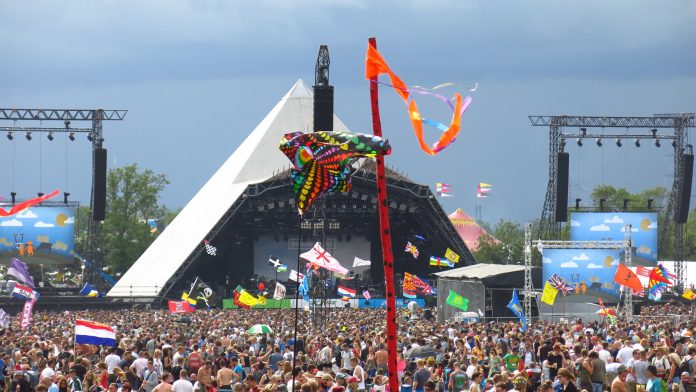Festival-goers deterred by extortionate electric vehicle (EV) charging fees at Glastonbury Festival complain about lack of green energy awareness.
As the popularity of electric vehicles continues to grow, consumers expect to have access to a reliable charging infrastructure to accompany it. Glastonbury Festival announced on its website that fees for EV charging would cost £80 for an hour should festival-goers’ batteries run out of charge on site. Later, after some abrupt feedback from customers, it was reduced to £50. This caused friction as the festival has been offered, and yet declined, climate friendly charging by ZPN Energy since 2021.
Some have argued that the festival has overlooked the ever growing importance of the green energy generation for EV charging. With rising spending power and digitally-enhanced information access, consumers are translating awareness into conscientious, organic, and environment-friendly product choices. Consumers are increasingly demonstrating environmentally and socially-conscious consumer behaviour.
EV charging at Glastonbury Festival
According to BBC research, the Eavis family – creators of the festival – provides environmental charity Greenpeace £500,000 in direct donations every year as well as free reign across the site to recruit festival-goers in a long-lasting relationship that was established in 1991.
“Why then charge £50 or even £80 per hour to recharge an electric vehicle?” questioned James Foster, CEO of ZPN Energy, whose company offered to install cost-effective renewable energy powered charging points on the site for the users of Glastonbury Festival.
The charging equipment, ZAP Store and ZAPME mobile EV charging units, would have been charged off-site and then taken to the festival. The chargers ultimately used by Glastonbury Festival that were high above market rates were also powered by diesel generators.
ZAP Store and ZAPME: Sustainable EV charging
ZPN Energy’s ZAP Store is a shipping container-sized unit that stores up to three megawatt-hours of electricity and can be charged off-site using renewable energy. This would be able to give full charges to 50 EVs with average-sized 60kWh batteries. Meanwhile, the mid-sized ZAPME battery-based mobile charging system fitted in the back of a standard electric van can deliver up to 50kW of charge to vehicles at such a speed that no one would be inconvenienced if caught behind them. These too are recharged using renewable energy off-site.
“Glastonbury, like COP26 and Goodwood Festival of Speed, were all using diesel generators to charge EVs on site – The Commonwealth games have now done the same and all publicly claim that a solution or technology doesn’t exist,” added Foster. “They were offered a solution, ignored it and some of these demanded that we also pay at least £35000 as an exhibiter. This hardly sits with these events ‘having a conscience’. In Glastonbury Festival’s case, if it was genuinely concerned about the climate rather than PR, they would invest in and support the EV revolution.”
Data shows that half a million EVs are on the road today with the proportion of battery electric vehicles being sold significantly increasing every month. Society of Motor Manufacturer and Traders (SMMT) figures show that battery electric vehicle sales accounted for 12.4% of all new cars sold as of May 2022.
To add to this, new EV camper vans such as the Volkswagen ID Buzz and Mercedes EQV are set to come on the market this year. Foster points out, “The VW ID Buzz and EQV camper vans are practically built with festivals like Glastonbury in mind. Is it not time that the festival and event organizers set about catering for climate friendly vehicles?”









